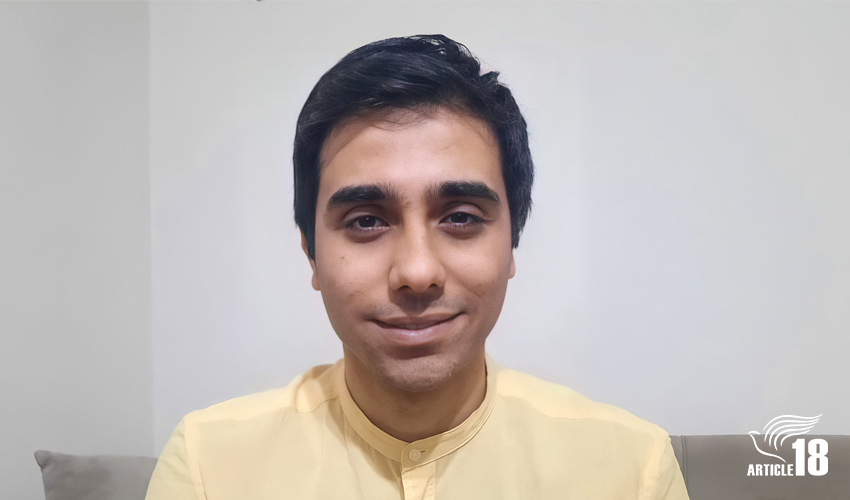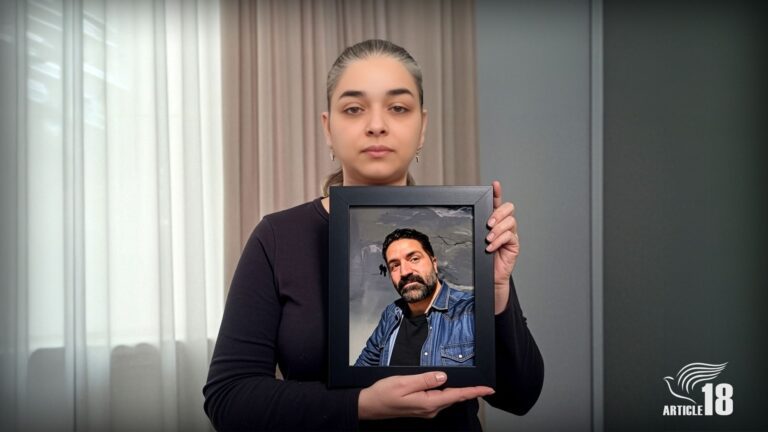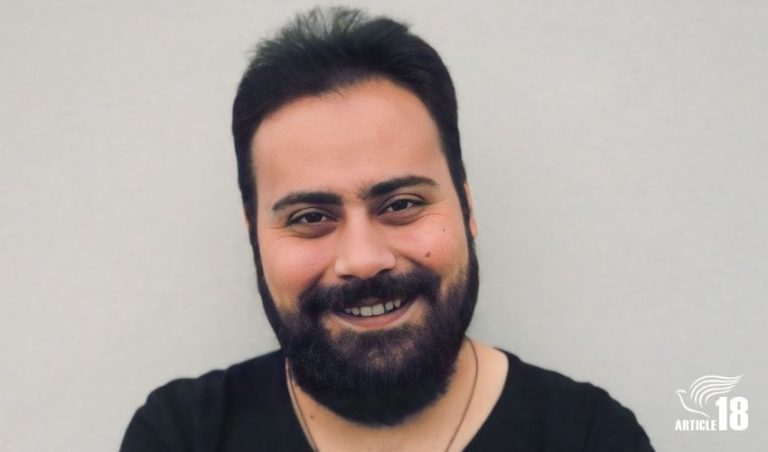
Ehsan Khoshgoo was a university student when he was arrested at a Tehran house-church gathering in November 2015.
When he was released on bail six weeks later, he was told he could no longer study at the university and that if he went back there, he would be arrested and sent back to prison.
By the start of the next academic year, Ehsan had fled the country.
A year later, he was sentenced in absentia to five years in prison.
Why? Because Ehsan had converted to Christianity as a teenager and joined a house-church, where, he explains, “we would meet each week to pray and praise together, and share testimonies with each other”.
For this, Ehsan and two of his friends were charged with “acting against national security through participation in house-church meetings, and connection to Christian ministries abroad”.
The charge sheet even named two of the foreign organisations Ehsan was supposedly connected to: a missionary organisation and theological college.
Ehsan says he was actually “too busy” to enrol at the theological college because of his university studies and work at an estate agency, but that “they wrote similar things on the charge sheet of many Christians, and only some were actually studying at the college”.
Why it should be problematic to study Christian theology in the first place is another question, but in Ehsan’s case this aspect of his official charge simply wasn’t true.
Ehsan was informed of the charges against him the day after his arrest, when he was taken from his solitary cell to the interrogator’s office at Tehran’s Evin Prison.
Ehsan was kept in solitary confinement for the first two weeks after his arrest, and only allowed out of the cell to be taken, blindfolded, for interrogation.
In those two weeks, Ehsan estimates that he was interrogated 12 times – each time for “between one and two and a half hours”.
“I had two interrogators,” he explains. “One of them, called Haj Agha Hosseini, was in charge, and he was also there at the time of our arrest. He spoke very insultingly and harshly. But alongside him there was another interrogator who spoke more kindly.”
Good cop. Bad cop.
During the interrogations, Ehsan was given a sheet of paper with a list of questions on it, such as: “What are the names of the people in charge of your meetings? Which organisation are you cooperating with? And who supports you?”
“Since I had visited Turkey twice to attend Christian seminars, I was also asked about those trips and why I had attended those seminars and what I had done there,” he adds.
Ehsan says that while he wasn’t physically beaten, “they tortured me with their threats”.
“For example, they said I would be old when I was finally released from jail, and that my younger brother would have grown up. They also said they would soon arrest my family and put them in jail.”
He adds that “being in solitary confinement and not knowing how long I was going to be in prison made me feel very down”.
After his two weeks in solitary confinement, Ehsan was held for another 25 days in a series of “suites” – the name given to the slightly bigger cells, with refrigerator and TV, in which up to four prisoners are held.
But to ensure he didn’t get too comfortable, Ehsan says he was forced to change cells four times over those 25 days.
“They wanted me to suffer,” he says. “As soon as I made friends with someone, I had to change ‘suite’, and friends.”
Ehsan was eventually released on bail of 200 million tomans (around $60,000 at the time) two days before Christmas.
But by this time, he had already decided to flee the country.
The final thing that Ehsan did before leaving Iran was to ensure that his bail – submitted in the form of his father’s property deed – was paid off.
Then, on 29 September 2016, Ehsan applied for asylum with the UNHCR in Turkey, where he still remains.
Now 30 years old, Ehsan is currently based in Eskişehir, south of Istanbul, as he continues to await resettlement.
You can read Ehsan’s full Witness Statement here.



0 Comments
Trackbacks/Pingbacks